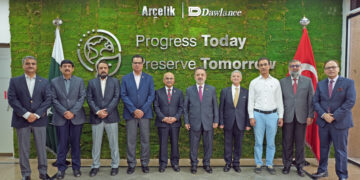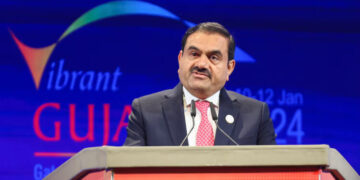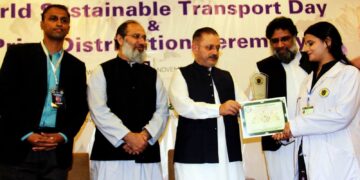In a bold statement issued from Washington D.C., Professor Dr. Gholam Mujtaba, Chairman of the Pakistan Policy Institute USA, sheds light on Pakistan’s current financial predicament and criticizes the government’s use of “Fake Memorandum of Understandings” (MOUs) as mere distractions.
Dr. Mujtaba highlighted Pakistan’s ongoing struggle to secure the last tranche of over 1.1 billion dollars from the International Monetary Fund (IMF), despite significant efforts. He expressed concern over the country’s looming financial crisis, with over 24 billion dollars of loan repayments due in the next fiscal year.
Moreover, Dr. Mujtaba revealed the government’s reliance on MOUs, labeling them as “lollypops” used to deceive the public. He emphasized that these MOUs lack substance and are merely a façade to create an illusion of progress. Dr. Mujtaba urged the government to focus on practical solutions rather than empty promises.
Furthermore, Dr. Mujtaba exposed the hindrances faced in bringing significant investment offers to Pakistan, citing red-tape and corruption within the government as major obstacles. Despite his efforts to attract billions of dollars in investment, bureaucratic hurdles prevented these offers from materializing, resulting in a loss of interest in assisting Pakistan.
The Pakistan Policy Institute of the USA stands in solidarity with Dr. Mujtaba’s call for a corruption-free Pakistan and urges immediate action from the government to address this pressing issue. It is imperative for the nation to prioritize transparency and accountability to pave the way for sustainable development and economic prosperity.
Evidence Supporting Dr. Mujtaba’s Claims:
















